The Moody Blues bring ‘Days Of Future Passed’ to opening night at the Hollywood Bowl
Share
OCRegister.com
It’s been 50 years since the Moody Blues went into the studio for a week and came out with “Days of Future Passed,” the British band’s iconic concept album that mixed progressive rock with an orchestral score and blazed a path that many bands would soon follow.
Surely many will remember such lushly scored singles pulled from the album including “Tuesday Afternoon” and “Nights In White Satin.” Though if you do, well, you might be surprised to hear bassist John Lodge describe “Days Of Future Passed” as the band’s attempt to make a blues record.
But hang on, Lodge – who with the rest of the Moody Blues comes to the Hollywood Bowl to play the full album with an orchestra on Saturday, June 17 – can explain.
“I’d been working with (future Moodies) Ray Thomas and Mike Pinder for a while, playing lots of songs on stage, American songs mostly, covers of the blues from the Delta and Chicago and Detroit,” says Lodge, who with singer-guitarist Justin Hayward and drummer Graeme Edge is one of three members of the classic lineup still in the band.
Still in his teens, Lodge eventually went off to college while Thomas and Pinder joined Graeme Edge, Denny Laine and Clint Warwick to form the first version of the Moody Blues, one that carried on in the vein of many English bands at the time, young Brits inspired by American blues. In 1966, Lodge and Hayward replaced Laine and Warwick, and this best-known lineup of the Moodies decided to try something different.
“We talked and said, ‘We don’t want to keep playing the same songs forever,’ ” Lodge says. “I’d never been to America, I’d never been to the Delta, I’d never been to Chicago.
“Blues is about growing up and what influenced your life,” he says. “We thought, ‘Let’s do it from an English point of view. Let’s do it from where we are.'”
Three months of rehearsals produced enough music to play a 45-minute set of original music on stage, Lodge says, those songs the earliest version of much of what would end up on “Days Of Future Passed,” though written for performance by a typical mix of rock and roll instruments. Then the band’s record label, Deram, an offshoot of Decca, came to the band with an unusual proposal.
“They wanted a way of showing how you can combine an orchestra, and, as they called us then, a pop band,” Lodge says. “The record company was coming up with an idea to sell their new record player with this record, because they had hardware and software at the same time then. I think we were the cheapest band they had on their label then so they asked us to do it.”
The original request was for the Moody Blues to write lyrics for Antonin Dvořák’s “New World Symphony” and record it with conductor Peter Knight and a studio orchestra, Lodge says. Once in the studio, though, the band recorded “what was basically our stage show,” he says. “Peter Knight was listening to our songs and said, ‘You should do your songs.”
So they did, with Knight adding orchestration to an album built on the concept of the passing of a day from sunrise to nightfall, Knight adding orchestral interludes and arrangements to link and expand the songs the Moody Blues had already written, recording and mixing the album in a single week.
“And at the end of the week we invited the record company people to come along, and we had girlfriends and friends in for a playback in the studio,” Lodge says. “We set up speakers, turned all the lights and played the album back.
“At the end of it there was a deathly silence,” Lodge says. “I was wondering, ‘Why are they silent?’ And suddenly there was this great reaction. We were all so taken aback. They said, ‘Play it again!’ So we played it again. And at the end of it everyone stood up and applauded except for some of the record company people. They didn’t understand what we’d done.”
What they’d done was both create a new kind of sound for rock bands to emulate but also make it quite difficult to recreate large parts of their album live on stage, given the impracticality of carrying an orchestra along on tour.
Which means that the performance at the Hollywood Bowl – with a full orchestra unlike other stops on the Days Of Future Passed 50th Anniversary tour – will be the first time that some songs from the album have ever been played live in the same way that they were recorded, Lodge says.
“‘Another Morning,’ never played that live,” he says. ” ‘Time To Get Away, never played that, ‘ ‘Dawn Is A Feeling,’ never played that. I think we played ‘The Sunset’ – no, I don’t think we’ve played that live either. So there’s four songs on there that other than when we played them in the studio 50 years ago we’ve never played live.”
The Moody Blues have played as many as 200 concerts with orchestras over the past 25 years, Lodge says, so he knows how special the Bowl show – which is also the venue’s opening night for the 2017 season – should be.
“There’s a very special feeling when you’re on stage with an orchestra,” he says. “Just the quality and the harmonic structure of an orchestra leads you to perform to the best of your ability.
“We really want to play this album as if it was yesterday but doing it today, if that makes sense,” Lodge says. “We want to try to get back to where we were at that particular time, so we can get back to the exact feeling we had at that time.
“And hopefully drift people away and take the audience on a journey.”
